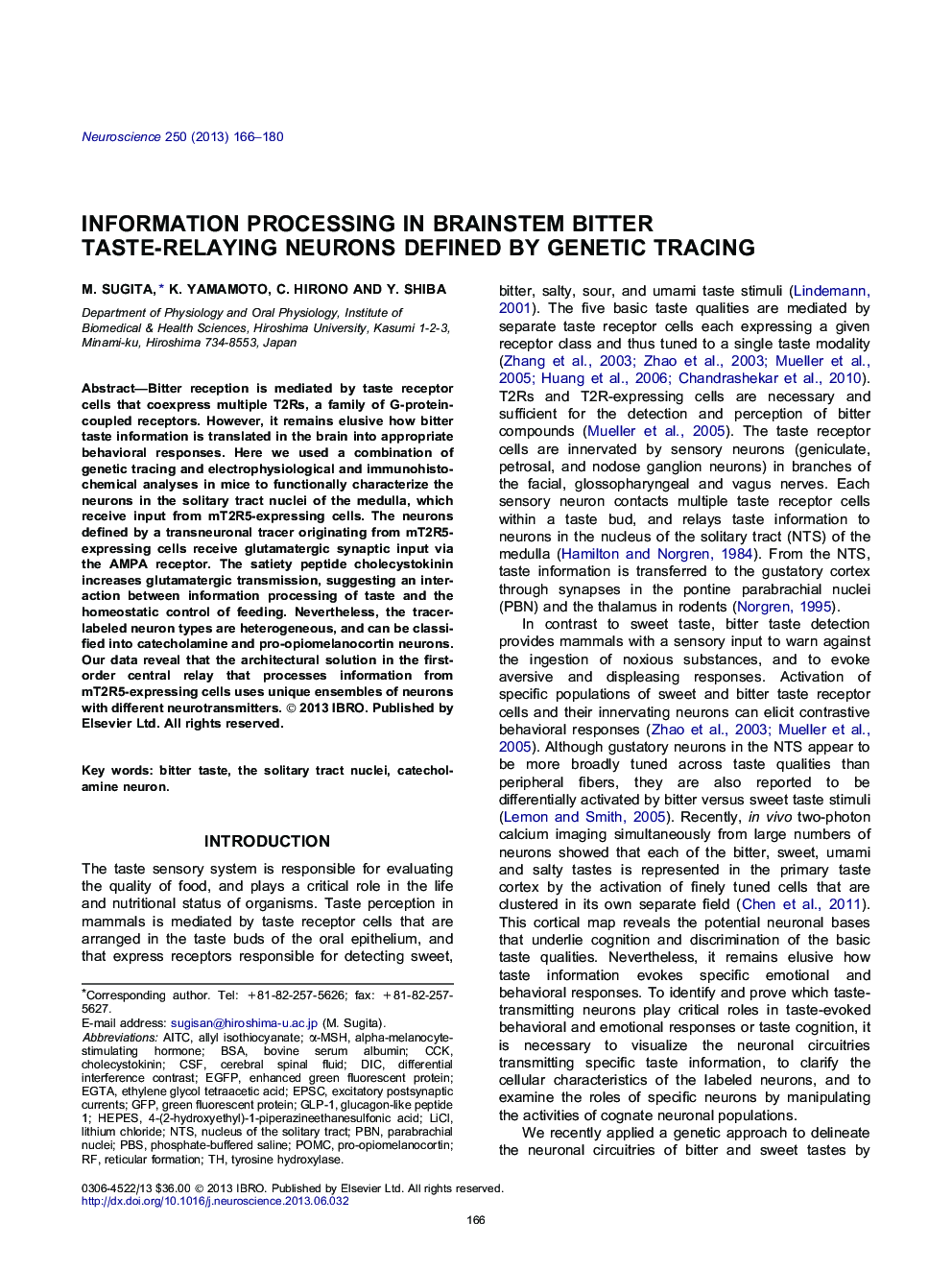| کد مقاله | کد نشریه | سال انتشار | مقاله انگلیسی | نسخه تمام متن |
|---|---|---|---|---|
| 6274518 | 1614826 | 2013 | 15 صفحه PDF | دانلود رایگان |
- Bitter taste-relaying neurons with bipolar structures are located posteriorly in the NTS.
- The NTS bitter taste-relaying neurons selectively process bitter taste information.
- The NTS bitter taste-relaying neurons receive glutamatergic synaptic input via AMPA receptors.
- The bitter taste-relaying neurons are classified into catecholamine and POMC neurons.
Bitter reception is mediated by taste receptor cells that coexpress multiple T2Rs, a family of G-protein-coupled receptors. However, it remains elusive how bitter taste information is translated in the brain into appropriate behavioral responses. Here we used a combination of genetic tracing and electrophysiological and immunohistochemical analyses in mice to functionally characterize the neurons in the solitary tract nuclei of the medulla, which receive input from mT2R5-expressing cells. The neurons defined by a transneuronal tracer originating from mT2R5-expressing cells receive glutamatergic synaptic input via the AMPA receptor. The satiety peptide cholecystokinin increases glutamatergic transmission, suggesting an interaction between information processing of taste and the homeostatic control of feeding. Nevertheless, the tracer-labeled neuron types are heterogeneous, and can be classified into catecholamine and pro-opiomelanocortin neurons. Our data reveal that the architectural solution in the first-order central relay that processes information from mT2R5-expressing cells uses unique ensembles of neurons with different neurotransmitters.
Journal: Neuroscience - Volume 250, 10 October 2013, Pages 166-180
